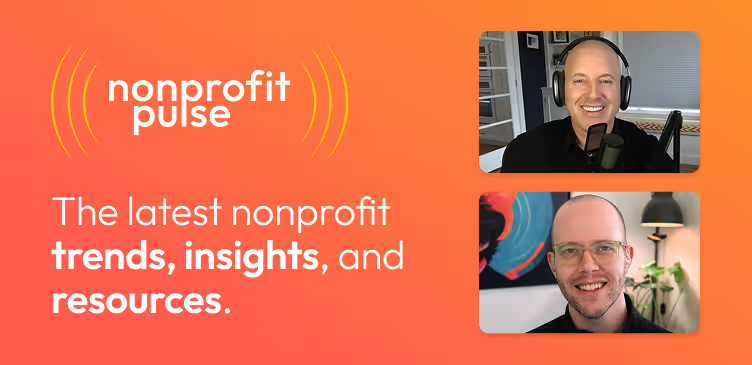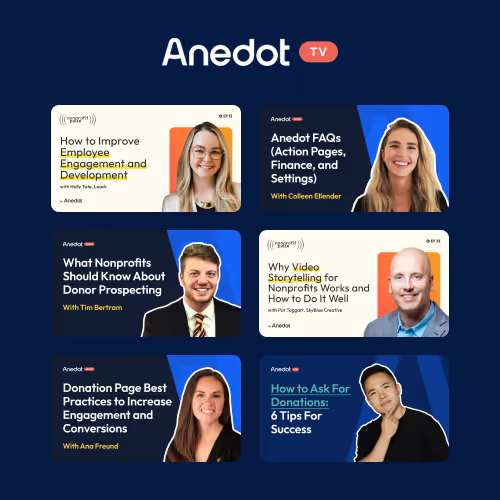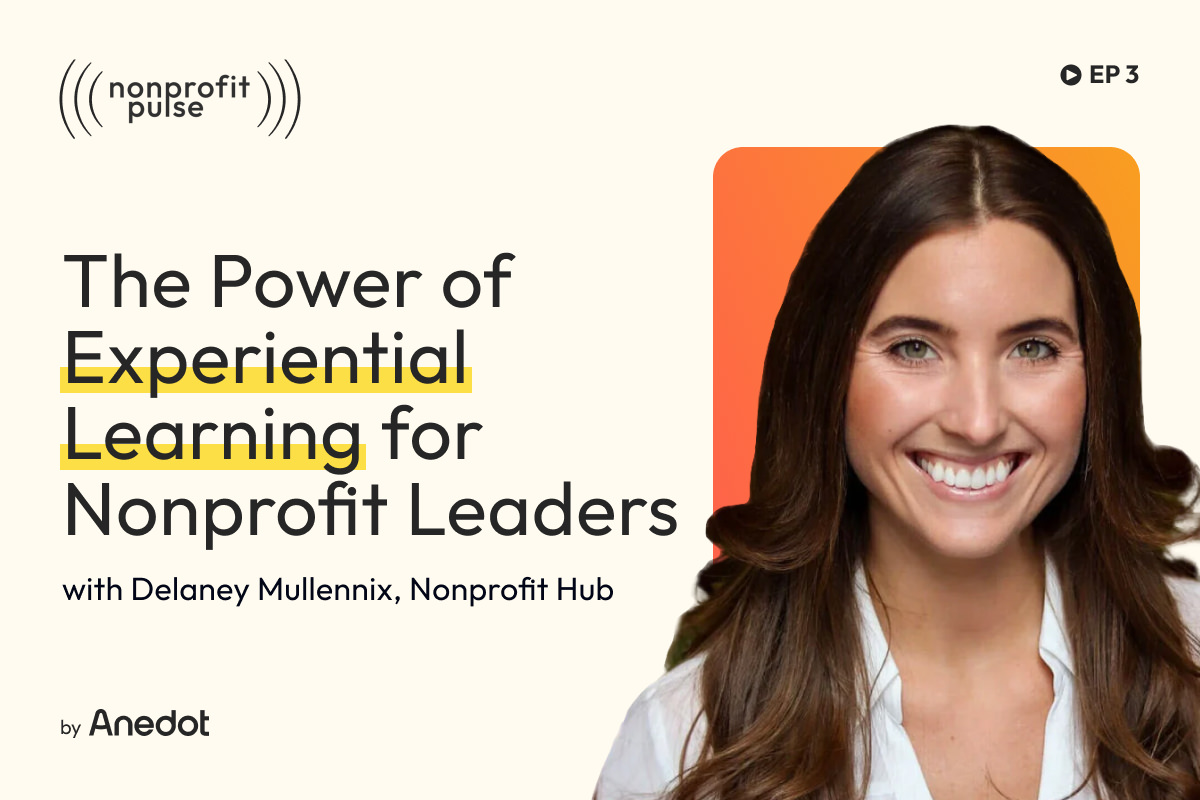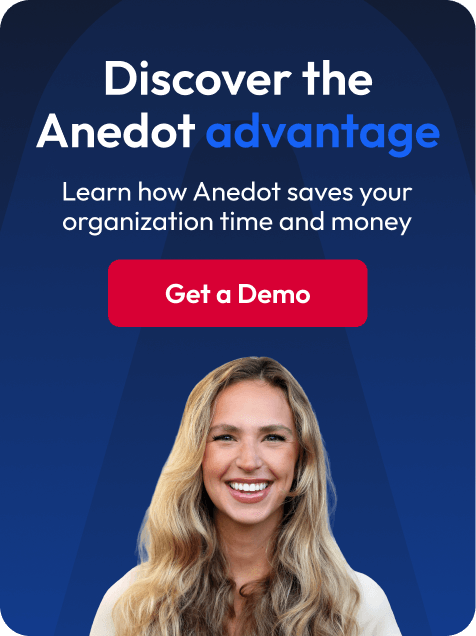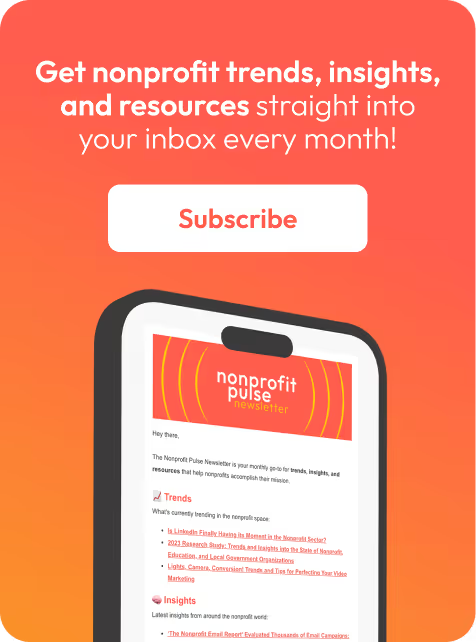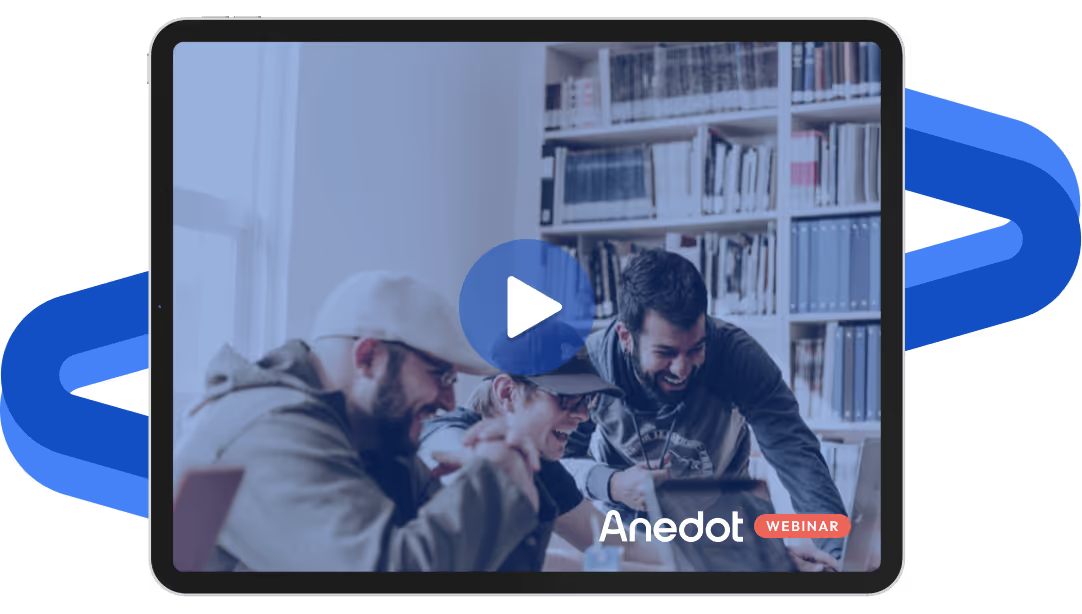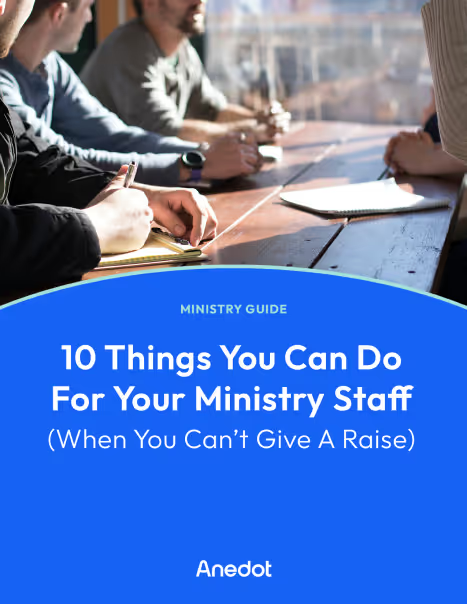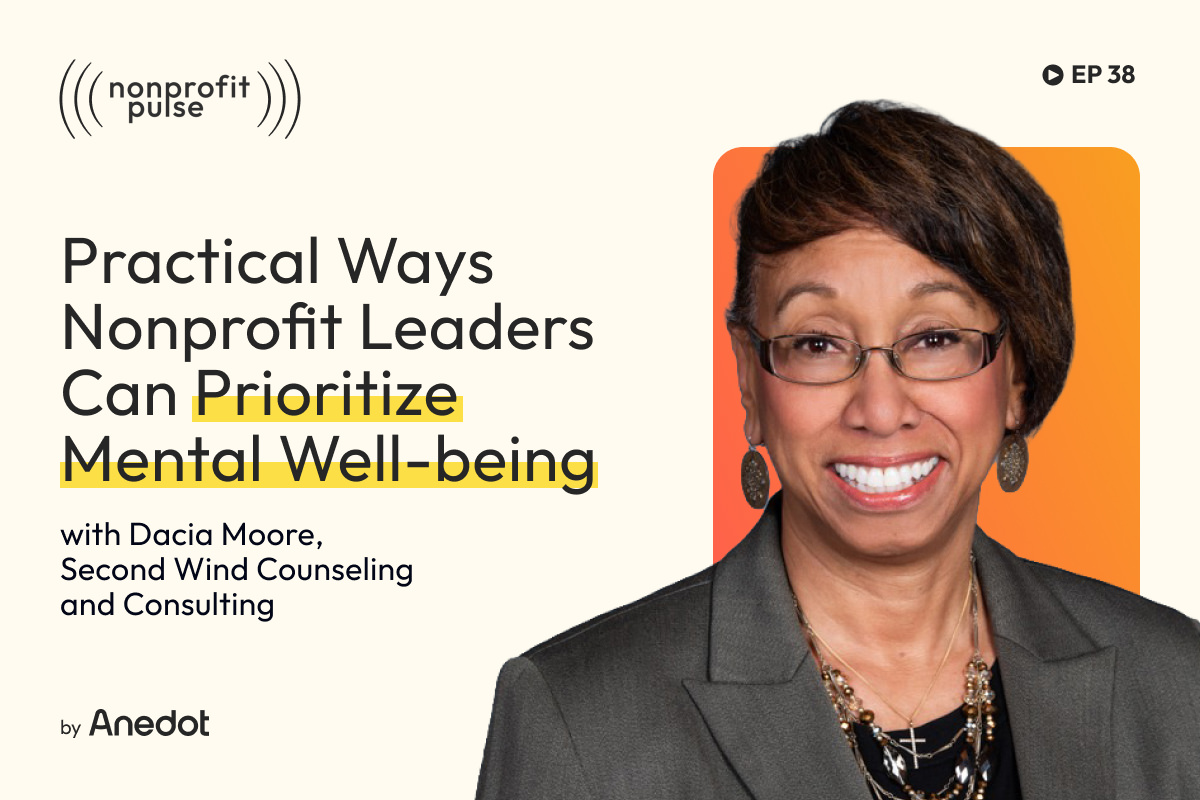Podcast episode transcript ↓
Josh:
There’s certainly no shortage of educational resources for leaders.
But what if the most transformative lessons nonprofit leaders learn are actually gained by doing and not through books, guides, or courses?
And how do nonprofit leaders pursue this experiential learning while navigating the challenges of trust, culture, and risk?
I’m Josh with Anedot, and welcome to Nonprofit Pulse where we explore trends, insights, and resources that help nonprofits accomplish their mission.
On this episode we are joined by Delaney Mullennix on the topic of “caught vs. taught” and the power of experiential learning for nonprofit leaders.
Delaney is the Executive Director of Nonprofit Hub, where she helps nonprofits through content, events, and experiences that propel nonprofits from doing good to growing.
Hey, Delaney, thanks for coming on the podcast.
Delaney:
Hello. Nice to be here.
Josh:
Yes. So today we're talking about the power of experience for nonprofit leaders and the concept of "caught vs. taught."
You know, many things you can really only learn through experience. You know, books and classrooms can only go so far.
And, you know, we were talking about this topic.
I thought it was so interesting because I haven't seen anything about this topic as far as it relates to nonprofit leaders, like what are some scenarios and examples that you've lived through that you see others live through?
And then how can nonprofit leaders empower more experiences for those under them, but also for the whole organization?
Why is experience the best teacher for nonprofit leaders?

Josh:
So really, just first, what why do you think that is, especially for nonprofits, that experience really is the best teacher?
Delaney:
Yeah, I don't think it's just true for nonprofits. I think it's true for any sector, any industry, any type of career.
I find that and you're right, I don't think a lot of people I think when you think about like the webinars and the conferences and everything that's available to nonprofits for them to learn.
Often like these smaller leadership lessons are presented.
And I have found that some of the most valuable takeaways that I've gotten are when there's like a leadership panel or there's like a lessons learned.
I think, for instance, in two months I actually get to go to a panel where an executive director just talks about the lessons that she's learned.
And these are so valuable, especially to young leaders like people who are new to leadership.
And again, this is true for any industry, any sector. If I was able to learn leadership lessons by being taught, life would have been a heck of a lot easier.
And I could have saved myself a lot of hard times and a lot of time in general.
There's two concepts that I love about this specific topic, which is learning through experience and not being able to learn it from someone telling you, or you reading it.
You can't be taught by just reading something
And one, is this concept of enlightenment.
And I went through this phase where I read a ton of books on Buddhism, and one of them is the story of Prince Siddhartha.
And one of the concepts that he talks about is that he left like his life. He left his life behind. He was getting taught all of these things from his father. He was he grew up like really wealthy, like had the best education.
And he was like, I can't learn any of this unless I experience this. And he went and he experienced homelessness, starvation, being rich, like he I mean, he did everything just to learn from himself.
And he, like, truly believes that you can't be taught through just reading something, or being told in a classroom environment.
The 70/20/10 rule of learning
And then the second concept that I absolutely love that I talk about a lot just on a daily basis is the 70/20/10 rule where, and I talk about this like a lot so if you’ve listened to me on a podcast, or my own podcast.
You probably heard me say it, but 10% comes from academic learning, 20% actually comes from mentors in your life, and 70% comes through challenging experience.
And so, again, I think that rule applies to like every industry, but especially nonprofits.
Lessons learned through experiential learning

Josh:
Yeah, so let's explore that some more. So maybe get personal.
What are some some real examples that you've seen throughout your leadership experience or even serving under others where the leadership experience, the actual time doing that or going through that season really changed you as a leader?
Delaney:
Yeah, there are definitely a lot.
I'll try to boil it down to a couple.
1. Work life balance isn't always 50/50
One of them is that as a leader or maybe just in any professional career, work life balance isn't always 50/50.
I think when people talk about work life balance, they're picturing you're balancing your life like your work life with your personal life. And it's equally split.
But that's not the case.
And that's always going to look different depending on where you're at.
So depending on the projects that you're working on, depending on the challenges that your organization is going through, you might work might take up like 70% to 80% of your life and your personal life is 20%.
But that doesn't necessarily mean you're off balance. It means you're putting in the time where you need to put in the time at the moment, and it's not always the same.
I think we need to expand our vision of what work life balance is, because I think often you might actually be jeopardizing your productivity or your true balance.
If you're thinking, I need to put this hard line on work, work hours or put this hard line on like personal life, because that's not always going to be a thing.
2. The importance of thoughtfulness towards your team
A second one that has been really prominent is learning the importance of thoughtfulness in two main things: reviews, like the review structure for your employees or anyone who you work with or under you, and thoughtfulness in your daily interactions with them.
I can't tell you how many employers I've had in the past who just didn't put the time of day into like my reviews, an annual review or a 30 day review, 90 day review.
And I've always worked really closely with them too.
So it's like I heard their language behind how they were feeling about upcoming reviews and it would always be something that they pushed off.
Like, I don't have time in my schedule to do this review today. We're going to reschedule it. We're going to reschedule. We're going to postpone it.
So I kept hearing, like the leadership side of basically saying this isn't important to me, like I have other priorities to do.
But then listening to all of the employees and like the people who are my colleagues saying, you know, oh my gosh, she postponed it again.
Like my review has been postponed. And reviews are so important because not only is the employee probably kind of nervous about the review, so they're putting all of this energy and they're taking this capacity of their brain to be worried about something and then perhaps the leader keeps pushing it off or they have the review and it's like, I mean, no insight is given.
You're basically given 5’s in all categories, right, depending on how the review structure is. And that just that's really defeating, I think, to an employee.
And so I've learned this through experience that you have to put the time into a review and be super thoughtful about it.
And even if they have like you can't say that there is nothing that the employee could work on, and the employee's expecting you to have that prepared.
And of course they might be thinking that they're getting a raise or something like that. But even if you don't have that ability to give them a raise, you're at least giving them something constructive and meaningful and valuable.
So that review did matter if you're actually taking the time to do it thoughtfully.
And then just like daily thoughtfulness.
So remembering their birthdays, checking in with them about stuff that they've said throughout the week.
I had a couple this week saying, you know, like, hey, I need to take afternoon off. I had like had really bad allergies or like my dog has been in the hospital or all of these different things like you need to pay attention to why they're leaving for the day and follow up on it.
Just say, hey, how's everything going with this? Like, do you need to take a shorter day, like a less intense day? Just let me know.
And offering like that takes the ability to listen. Because like in all of those times where they let me know, they need to take a step back. I was busy, right? I'm like, okay, like, whatever.
Like, do your thing. It would be very easy for me to forget that even happened, to be completely honest.
Sometimes I look back on yesterday and I'm like, I have no idea what I did. Like all day. I can't tell you.
So being able to recall information and what's going on with your team is super important.
3. The difference between a manager and a leader
But the last thing about this specific lesson that I've learned through experience is: their to-do list shouldn’t be something that you're just making sure gets done.
You should be putting a lot of care and attention into the work that they've done.
And this means not only just saying, yeah, check. Like that's good.
Actually offer sincere feedback and invest in their to-dos because that's the only time that they're going to look at you as a leader.
Like, I think this is the difference between a manager and a leader, right?
A manager makes sure you get stuff done. A leader makes sure that you do things well and that you are invested in it.
And it's like pushing the organization forward.
And I think that is something that, again, I've learned through experience and not because someone even if someone told me, right, I'm not going to take it seriously until I experience it.
Josh:
I love that and I love how all of those examples really are related to a proper work life balance.
Or, you know, a few years ago I read about changing work life balance to be more work life rhythms because we all have seasons where, hey, you know what? This month or these next three months, you're going to be incredibly busy.
I've got X, Y, Z going on with the organization or, you know, I've got family issues going on, sick kids, pets, whatever it is.
Having a healthy work life rhythm will allow you to have a personal health that allows you to care for your people, allows you to pursue relationships, where you're not in this constant burnout. It allows you to give good feedback and to give empathetic feedback to your people.
And so, yeah, it's just it's just hugely important.
Nonprofit leaders must seek out challenging experiences to grow in leadership

Josh:
So talk to us more about what you see kind of around the nonprofit space right now.
Maybe it's recent or maybe it's, you know, something that's always a challenge.
But what are you seeing and what would you recommend for nonprofit leaders to really seek out experience in?
You know, one thing you mentioned a minute ago was bosses and annual reviews.
Yeah. So you know, a lot of bosses have actually never received a review and so that blindness on the side of how this may feel, how rescheduling their review may feel, how an underwhelming review may feel, they don't have that.
So what are some things that you would recommend nonprofit leaders actually seek out and pursue to have that experiential learning?
Delaney:
Yeah, that's super interesting. I think one of the other lessons I've learned is that unfortunately, like the higher you get, no one cares about your to-do list.
It gets lonely. No one's going to affirm your work.
And something that someone said to me that really like spoke loudly to how I was feeling. They said, you aren't being rewarded for completing all of your tasks.
You're being paid to help prioritize and drive results for the organization. And that clicked for me like no one cares about my to-do list.
The problem is, that with the nonprofits, the like the hierarchy of your structure is so much smaller than in an organization that this might really apply to in a very serious way.
So, for example, when I became the executive director, I moved one level up in my organizational hierarchy.
But guess what? There's only like three levels total, maybe two, like if we really boil it down.
So there's like this concept of like working in the organization and working on the organization. Like, yes, if I was really being rewarded to prioritize and drive results, you could say I'm working on the organization.
But unfortunately, because we have five staff as a majority of nonprofits have ten or under staff members, maybe some aren’t even paid, you are going to have a to-do list.
And I think to your point, that is maybe why there's so much burnout for nonprofit leaders is that they are accountable to to-do lists, but they're also accountable to driving results for the organization and like being able to prioritize those things.
So like, we're dealing with all of it and again, the organizational structure and like, it's not like you're just providing oversight, like you're really in the trenches when you have a small you have a small team.
But I think something that nonprofit leaders can do to kind of challenge themselves and, well, for one, get what they deserve, but then also challenge themselves and grow in different areas of leadership by learning is being very straightforward about what you deserve.
You can't get what you want until you ask for it. And so if you aren’t getting reviews from your board, it's not necessarily your responsibility to ask, but like you're going to have to ask.
And I just did a video to kind of highlight some of the board resources that Nonprofit Hub has that we just recently updated.
But one of the things I said was you can't improve your board without hard work right?
At the space between where you are and where you want to be is hard work, and you're going to have to put that work in.
You can't just like expect it to happen because you want it to happen. So ask for what you want, ask for what you deserve.
Second of all, challenge yourself.
When I became the executive director, I had to take on podcasting.
You and I just talked about this and I had to take on doing a lot of our public relations, like going out and presenting, taking podcasts interviews, things like this, none of that I had ever done and nor did I want to do. There are things that scare you the most, and these are things that your brain and your body naturally rejects.
So, like I would naturally reject wanting to present or be on a nonprofit podcast interview or do any of these things. If someone reached out to me about it, I'd be like, yep, someone else can do it. I'll coordinate, anyone else can do it. I just don’t want to do it. I'll help coordinate.
But the things that your body and your brain are literally naturally saying no, like rejecting it.
They're not natural for us. Like, we're not going to do it. Do it.
That's like one thing that you will challenge yourself as a leader and you'll learn through experience and it's going to be great. I promise.
The second thing that I would say, and this is kind of funny, but I realize that I do this a lot is to develop a motto, and I have so many different personal mottos.
One of them is to be here, and I kind of use that one as like, be here, like be present. Like this is one of the things I can help you listen to your staff is the power of being where your feet are.
So instead of thinking about my meetings later in the day or things that happened yesterday, or things that I have months from now or like the dress, I need to go get dry cleaned for like my girlfriend's wedding coming up.
Like, if you're not here, you're not going to do well other like mottos that I have are nothing to it but to do it.
So again, like these things that you find challenging, that your body is like rejecting, just have a motto. And I don’t say this, I mean, put your hair in a bun and handle it type of a thing.
And then my last motto is if anyone else can do it, so can I.
I think this is funny, but I think the power of the mind and how you're speaking with yourself is super important.
How can nonprofit leaders encourage others to pursue experiential learning?

Josh:
Yeah. I mean, it makes so much sense that nonprofit leaders are going to have to seek that out right?
They're going to have to seek out opportunities for them to experience things that may even seem awkward to others around them right?
It may mean getting in the weeds. It may mean asking the board to do something that they've never done before or maybe culturally, you know, outside the bounds of what's normal.
But it's so important for their own personal and professional growth.
So thinking of that, but thinking more leader or manager to direct report, how can nonprofit leaders empower and encourage others to also seek out that experience?
1. Recognize your employee's strengths
Delaney:
Yeah, absolutely. And I think that's a really important part of being that true leader for an organization.
I'd say recognize your employee’s strengths.
There's never been a in my career path, my path to leadership has always resulted from managers and leaders recognizing my strengths and constantly encouraging me to grow in those areas and pursue leadership.
It wasn't something that I really found came naturally to me. But when you have a mentor who is encouraging you to do it because they see these strengths in you and these skills, you might end up doing it.
Like, for example, myself, I hear that a lot from leaders is that they weren't necessarily planning on ever being an ED or being in a C-level position or running an organization or starting a nonprofit organization, but someone saw it in them to do so, and they recognized that strength and they encouraged them to do it.
And when I say recognize your employee’s strengths, I mean, do it a lot. Like, I don't care if it feels fake to you or like you're way overdoing it.
Because if they're doing something well and you are being sincere, if they're doing something well and you're recognizing it and this is going to make them so confident and feel so good and self secure that they're going to start taking leadership over that thing, but they're also going to feel really confident and able to do that in other areas as well.
2. Offer professional development (the right way)
The second thing that I would say a way that you can lead others on your team to seek out other experiences is of course always offer professional development.
But there's a way to do this and there's a way not to do this.
The way you don't want to do this is say if you see something you're interested in doing a course or class, whatever, let me know and we'll talk about the budget for it. You know, we'll see if we can make it happen.
Don't do that.
What I want you to do is actually find an opportunity for them and present it to them and say, I think this is going to be really great for you. Here's why. Are you available to do it? Would you like to do it?
And this says a couple of things to your employee and it might seem counterintuitive because we're talking about learning through experience, not through academics or like classes or courses.
However, when you show that you've taken the time to care about that employee's growth and they recognize that, they're also going to take it seriously.
And this is another confidence booster.
And again, I think confidence is huge if you're trying to encourage your team to take on leadership experiences.
Another side benefit of like choosing professional development for them is that it's probably going to be very relevant to your organization and like the position that they're in.
But I guess those are two of my thoughts on that.
How can nonprofit leaders overcome a risk averse culture when it comes to experiential learning?

Josh:
And maybe a follow up question that we were talking with Nathan Hill recently from NextAfter about nonprofit innovation and how nonprofits are risk averse, you know, naturally.
So how can nonprofit leaders overcome that culture of being risk averse to being a little bit more risk on with their leaders, with their employees in a culture that, again, is just doesn't like to fail.
Right? There's a lot of fear of failure. There's a fear of wasting the donations of their supporters.
How can nonprofit leaders overcome that and build a culture that's it's a bit more risk on when it comes to professional development and doing new things?
Delaney:
Yeah, that's a great question. And I know a lot of people are asking that question.
For Nonprofit Hub, that hasn't ever been difficult for us. One of our core values is being unabashedly ambitious, and so we don't we don't mind going above and beyond like normal methods anyways to delight the nonprofits that we serve, but also our partners that invest in our mission.
But I think it's important to understand the real opportunity cost of a challenge or a new thing of a risk, because I think sometimes anything that has a possibility of failure.
I think in the minds of a nonprofit professional, you automatically kind of get to the get to the assumption that it's not going to be worth it, or this like irrational fear that like the organization's going to fail and no one's ever going to donate to us again.
Josh:
Everything is going to fall apart.
Delaney:
That's right. It's not a rational. Like weigh out the pros and the cons. Like what is the actual risk of doing something new?
Like maybe we lose five grand. Okay, is that the end of the world that we lose five grand? Probably not.
And at least you tried, right? So there's always this thing of, like that, you could say that there's no hurt in trying.
I think a lot of times that's probably more true than that it isn't true.
So yeah, that's something that I would say, but if again, like I think to my point, I think there's fear, there's a lack of confidence that something might work.
And I think when you surround yourself with people who are doing similar things, it's really important.
So I mean, we're surrounded by people who are innovating and optimizing every single day. So it's easy for us, because we're surrounded by that culture.
But some nonprofits might not be, especially if they're in a more conservative environment.
Maybe if their donors are more conservative, that's not who they're being inspired by.
And so I would also say, let's check your network and see if you can maybe challenge yourself to broaden your network's perspective on what it means to be innovative and optimized.
Closing thoughts

Josh:
So imagine that we are sitting on a stage in front of 500 or a 1,000 people, which is not hard for you to do. What would you say to those in the audience?
As nonprofit leaders in the audience about seeking out experience and empowering experience for those under their leadership?
Delaney:
That's a good question. I always want to hype our nonprofit professionals off and just say, be nonprofit proud.
You guys are doing awesome things and we need you to innovate and lead.
I laugh, there’s this meme that I think is so funny because I think for a while it was like everyone was becoming a realtor and this might not be relevant to your question, but I feel like it's going to come around.
Everyone became a realtor because the market was like exploding. People were all leaving different careers and they were all taking their licensing exams to be in real estate.
And there was this meme and it was someone like yelling for help at an airport. And there was like this bubble above his friend that said, help, help.
Is anyone a doctor? And everyone standing around watching this person on the ground, all their bubbles, what came up and said, I'm a realtor, I’m a realtor, I’m in real estate, I'm a realtor, and I'm like, If that isn't the truth, I don't know what is.
And my whole point to this is it's actually very common for people in the nonprofit sector to leave their roles for real estate.
That's probably there's a very real statistic on that. But beside that point, it's like that. The whole point of that meme is that the world needs doctors.
And my point is that the world needs nonprofit professionals, like we are filling gaps in what the other sectors aren't doing.
The world needs us to be there to help with homeless services, to help with civil and human rights, to do all of these things that aren't being done.
Like we need you to exist, we need you to be nonprofit proud and lead.
Josh:
I love that. I love that. So resources that you would recommend to nonprofit leaders?
Delaney:
Oh so many, there are so many great resources.
I mean, podcasts are great. I would dig into some podcasts. I know that you guys are new to podcasting a little bit, right? About how many episodes are we?
Josh:
Yes. Yeah, we've got we've got a few recorded. This is number five on the recorded side.
Delaney:
Yeah, Yeah. I mean, anything that you're looking to grow for in leadership, search it on whatever podcast station you have. I like Apple Podcasts. Some people like Spotify.
The Nonprofit Hub Radio Podcast. We cover leadership topics a lot.
I would also say definitely check out like a group, like a networking or a membership group. Nonprofit Hub does have cause network where you can network with peers across the country.
We have different types of courses for whatever you're trying to learn in your nonprofit management role.
But yeah, I mean, there's so much like there is really no limit on the amount of nonprofit educational resources.
And again, like we're talking about, just challenge yourself, go out there and actually experience it and you will grow so much more than if you're just reading a book.
Josh:
Yeah, maybe take those 4 or 6, 8 hours that it would take you to read a book and find something hard to do or something that's that you've never been able to do.
Yeah, for your own betterment.
Delaney:
Yeah, of course. Yeah. I think myself I, I was, I mean, we're a media platform, so there's a lot that I'm learning about digital media things that I mean, I have to Google something every single day and something that I want to become a leader in for our organization is being able to look at our Google Analytics for our website.
And so I literally just signed up for NextAfter’s course, actually for the G4 platform that's coming out and kind of erasing the old Google Analytics platform.
But taking that course alone isn't going to help me be a leader in it. So I also have been kind of like digging around on my own in G4, so I actually have a challenging experience.
Like taking the course isn’t going to do anything for me unless I'm doing the challenging work in G4 and like getting to know what that looks like so you can do both and that’s more beneficial.
Josh:
Yeah. And even repetition, right?
You know, doing something once is helpful, doing something ten times is typically, you know, changes your your whole life and abilities because it opens up new doors.
Delaney:
Yeah yeah absolutely.
Josh:
Awesome. Well I love nonprofit leaders. I love talking leadership.
And you know, one of the things that you said that I'm going to take away from this conversation is, you know, the world does need more nonprofit leaders.
And the nonprofit space is only going to change and innovate and be better by having leaders committed to doing this, to growing, to innovating, to changing cultures within small nonprofits, large nonprofits, and helping to make the world a better place with just incredible organizations doing all sorts of things.
You know, we need we need that. We need those advocates out there.
Delaney:
Yeah, absolutely. Actually, one more thing, too.
I have a great girl friend of mine that I actually grew up with, but she is a co-executive director for I believe it's a food pantry, a food resource program. And I just shared on my LinkedIn.
So if you aren’t following me on LinkedIn, please connect with me.
Pro-Tip: Learn how to leverage LinkedIn for nonprofits to help build your brand, promote your culture, engage donors, and more from our conversation with Anthony Jones!
I just shared an article this morning about doing something different with leadership and like her first, like her whole post was about leadership is hard, leadership causes burnout.
Try something different. They have four co-executive directors instead of one ED.
And so this whole article shares how that has worked for their organization and how they've been able to grow exponentially through that leadership model versus something very traditional.
It's like a super good example of our conversation today.
Josh:
That's awesome. I’m going to check that out and everyone should check out Delaney on LinkedIn as well as at Nonprofit Hub.
Delaney, thanks so much for coming on.
Delaney:
Thank you for having me Josh.
Josh:
Hey, thanks for checking out this episode!
If you enjoyed it, please share it with others or leave us a rating and review.
To find show notes and resources mentioned in this episode, visit Nonprofitpulse.com.
There, you can also sign up for the Nonprofit Pulse monthly newsletter where we send the latest trends, insights, and resources to help nonprofits accomplish their mission.
We'll see you next time.
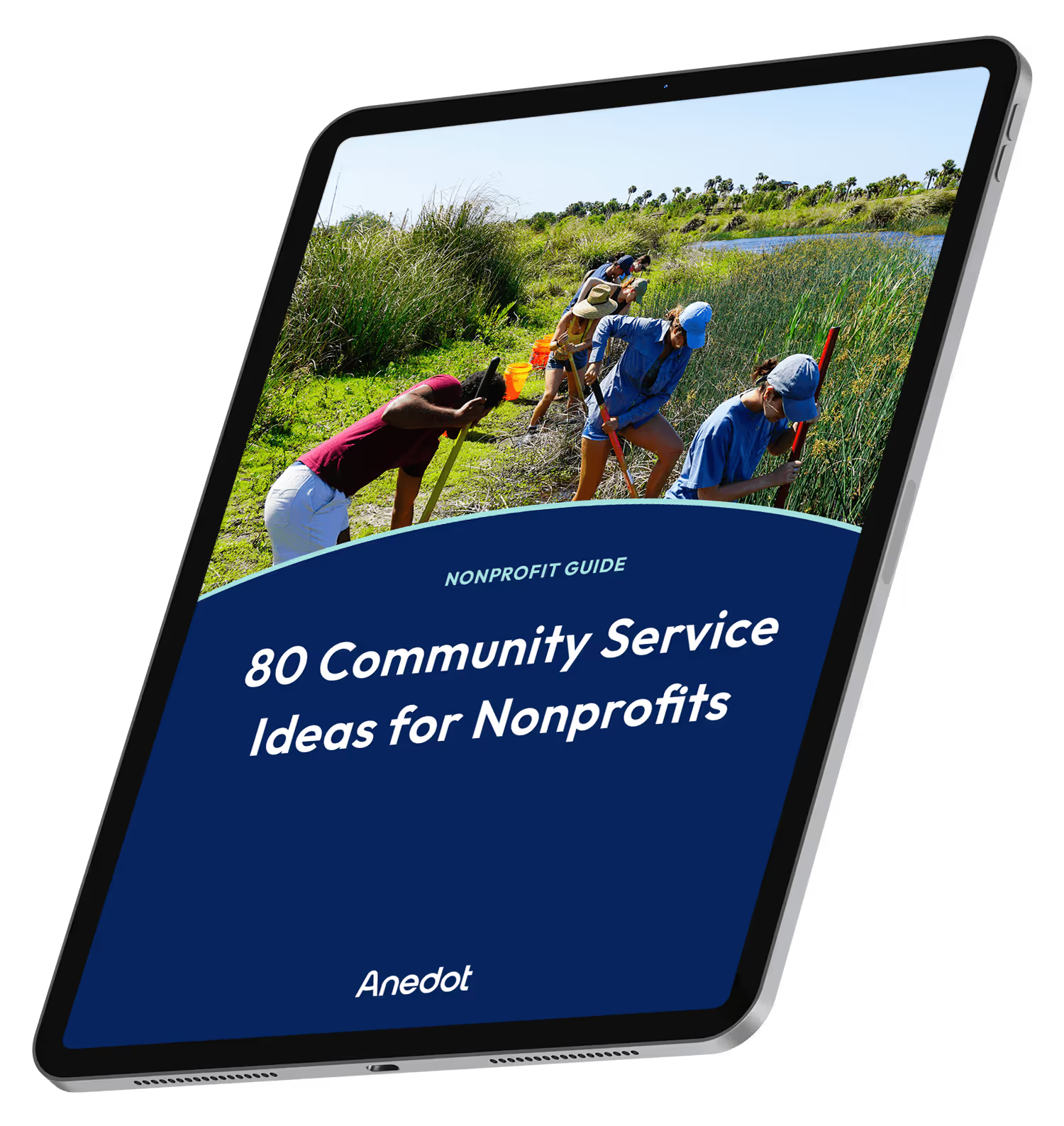
80 Community Service Ideas for Nonprofits

